Terence Davies
Birth : 1945-11-10, Liverpool, England, UK
History
Terence Davies (born 10 November 1945) is an English writer-director and former novelist. As a filmmaker, Davies is noted for his recurring themes of emotional (and sometimes physical) endurance, the influence of memory on everyday life and the potentially crippling effects of dogmatic religiosity on the emotional life of individuals and societies. Stylistically, Davies' works are notable for their symmetrical compositions, "symphonic" structure and measured pace.
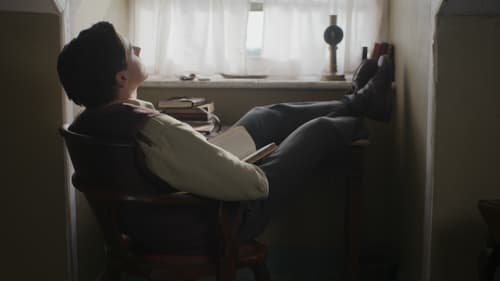
Writer
Poet Siegfried Sassoon survived the horrors of fighting in the First World War and was decorated for his bravery, but became a vocal critic of the government's continuation of the war when he returned from service. Adored by members of the aristocracy as well as stars of London's literary and stage world, he embarked on affairs with several men as he attempted to come to terms with his homosexuality.

Director
Poet Siegfried Sassoon survived the horrors of fighting in the First World War and was decorated for his bravery, but became a vocal critic of the government's continuation of the war when he returned from service. Adored by members of the aristocracy as well as stars of London's literary and stage world, he embarked on affairs with several men as he attempted to come to terms with his homosexuality.

Narrator (voice)
An elegy to time and life, condensing Terence Davies' profoundly humane poetics into little more than one minute, enveloping the viewer in an atmosphere of light and (Davies’ own) words.

Writer
An elegy to time and life, condensing Terence Davies' profoundly humane poetics into little more than one minute, enveloping the viewer in an atmosphere of light and (Davies’ own) words.

Director
An elegy to time and life, condensing Terence Davies' profoundly humane poetics into little more than one minute, enveloping the viewer in an atmosphere of light and (Davies’ own) words.

Program focuses on the lasting appeal and cinematic brilliance of The Ladykillers. Included in it are clips from interviews with broadcaster and author Stuart Maconie, film editor Catherine Shoard, actor and writer Reece Shearsmith, and author Ronald Harwood, amongst others.
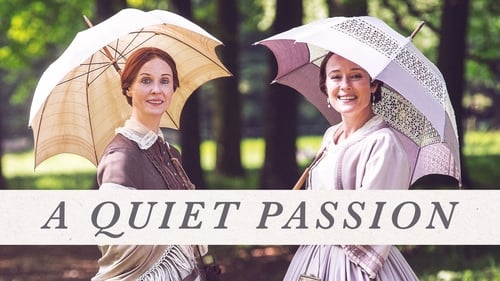
Writer
The story of American poet Emily Dickinson from her early days as a young schoolgirl to her later years as a reclusive, unrecognized artist.

Director
The story of American poet Emily Dickinson from her early days as a young schoolgirl to her later years as a reclusive, unrecognized artist.

Adaptation
The daughter of a Scottish farmer comes of age in the early 1900s.

Writer
The daughter of a Scottish farmer comes of age in the early 1900s.

Director
The daughter of a Scottish farmer comes of age in the early 1900s.

Writer
The wife of a British Judge is caught in a self-destructive love affair with a Royal Air Force pilot.

Director
The wife of a British Judge is caught in a self-destructive love affair with a Royal Air Force pilot.

Narrator (voice)
A heart-stirring meditation on time, memory and mortality, “Of Time and the City” is Terence Davies’ poetic, conflicted ode to his birthplace of Liverpool, England. The visual content of the film consists largely of archival clips of the city from the 1940s to the 1960s, their nostalgic charm darkened by accompanying music and the counterpoint of Davies’ dry, at times dyspeptic, voice-over narration. His voice thickens with emotion as he recalls the delights of juvenile movie-going or the ritual of a holiday trip to New Brighton, across the River Mersey, and hardens with contempt when he turns his gaze on the hoopla surrounding Queen Elizabeth’s coronation in 1953. The film is a powerful evocation of the director's youth in post-war Britain and a reflection on how his home city has changed over the years.

Writer
A heart-stirring meditation on time, memory and mortality, “Of Time and the City” is Terence Davies’ poetic, conflicted ode to his birthplace of Liverpool, England. The visual content of the film consists largely of archival clips of the city from the 1940s to the 1960s, their nostalgic charm darkened by accompanying music and the counterpoint of Davies’ dry, at times dyspeptic, voice-over narration. His voice thickens with emotion as he recalls the delights of juvenile movie-going or the ritual of a holiday trip to New Brighton, across the River Mersey, and hardens with contempt when he turns his gaze on the hoopla surrounding Queen Elizabeth’s coronation in 1953. The film is a powerful evocation of the director's youth in post-war Britain and a reflection on how his home city has changed over the years.

Director
A heart-stirring meditation on time, memory and mortality, “Of Time and the City” is Terence Davies’ poetic, conflicted ode to his birthplace of Liverpool, England. The visual content of the film consists largely of archival clips of the city from the 1940s to the 1960s, their nostalgic charm darkened by accompanying music and the counterpoint of Davies’ dry, at times dyspeptic, voice-over narration. His voice thickens with emotion as he recalls the delights of juvenile movie-going or the ritual of a holiday trip to New Brighton, across the River Mersey, and hardens with contempt when he turns his gaze on the hoopla surrounding Queen Elizabeth’s coronation in 1953. The film is a powerful evocation of the director's youth in post-war Britain and a reflection on how his home city has changed over the years.

Self
Doris Day has often been dismissed as an actress and overlooked as a singer, despite career highs such as Calamity Jane and Pillow Talk. Covering her early years as a band singer, and her troubled private life, this documentary re-evaluates one of the screen's most enduring legends.
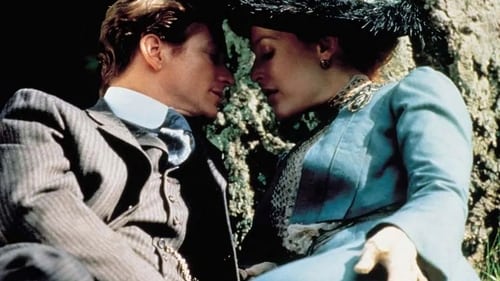
Writer
A woman risks losing her chance of happiness with the only man she has ever loved.

Director
A woman risks losing her chance of happiness with the only man she has ever loved.
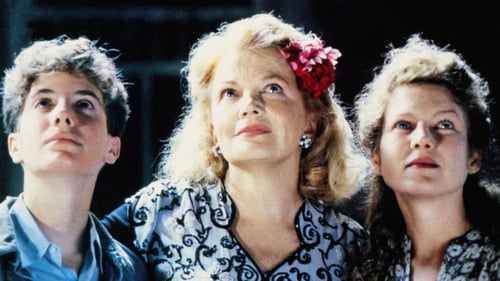
Screenplay
While on a train, a teenage boy thinks about his life and the flamboyant aunt whose friendship acted as an emotional shield from his troubled family. This film evokes the haunting quality of memory while creating a heartfelt portrait of a boy's life in a rural 1940s Southern town.

Director
While on a train, a teenage boy thinks about his life and the flamboyant aunt whose friendship acted as an emotional shield from his troubled family. This film evokes the haunting quality of memory while creating a heartfelt portrait of a boy's life in a rural 1940s Southern town.
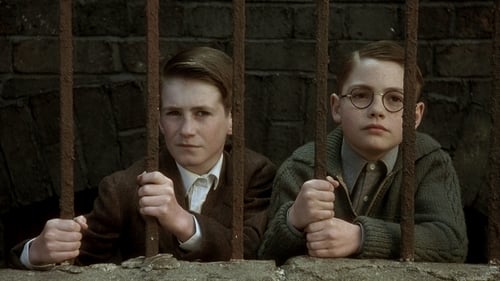
Writer
Bud is a lonely and quiet boy whose moments of solace occur when he sits in rapture at the local cinema, watching towering and iconic figures on the movie screen. The movies give Bud the strength to get through another day as he deals with his oppressive school environment and his burgeoning homosexuality.

Director
Bud is a lonely and quiet boy whose moments of solace occur when he sits in rapture at the local cinema, watching towering and iconic figures on the movie screen. The movies give Bud the strength to get through another day as he deals with his oppressive school environment and his burgeoning homosexuality.

Interviewee
Television documentary about British film director Terence Davies and his film "The Long Day Closes."
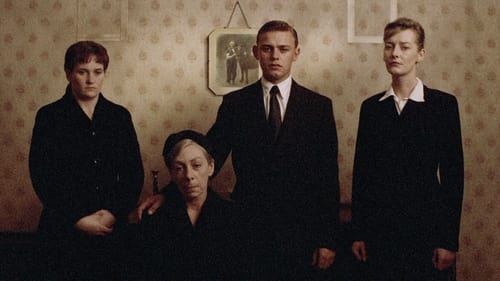
Writer
The second film in Terence Davies's autobiographical series (along with "Trilogy" and "The Long Day Closes") is an impressionistic view of a working-class family in 1940s and 1950s Liverpool, based on Davies's own family. Through a series of exquisite tableaux Davies creates a deeply affecting photo album of a troubled family wrestling with the complexity of love.

Director
The second film in Terence Davies's autobiographical series (along with "Trilogy" and "The Long Day Closes") is an impressionistic view of a working-class family in 1940s and 1950s Liverpool, based on Davies's own family. Through a series of exquisite tableaux Davies creates a deeply affecting photo album of a troubled family wrestling with the complexity of love.
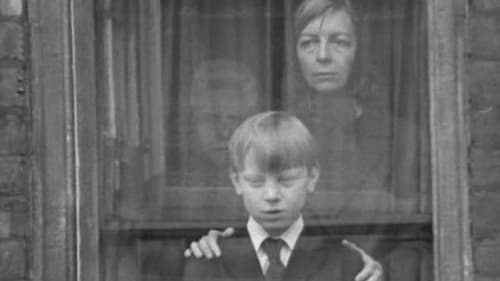
Writer
These three semi-autobiographical short films by Terence Davies follow the journey of Robert Tucker, first seen as a hangdog child in "Children" (1976), then as a hollow-eyed middle-aged man in "Madonna and Child" (1980), and finally as a decrepit old man in "Death and Transfiguration" (1983). Dreamlike and profoundly moving.

Director
These three semi-autobiographical short films by Terence Davies follow the journey of Robert Tucker, first seen as a hangdog child in "Children" (1976), then as a hollow-eyed middle-aged man in "Madonna and Child" (1980), and finally as a decrepit old man in "Death and Transfiguration" (1983). Dreamlike and profoundly moving.
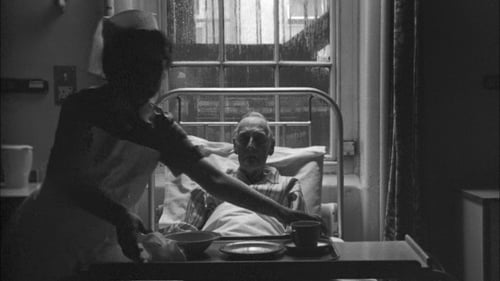
Writer
In sepia tones, the film moves back and forth among three periods in Robert Tucker's life: he's an old man, near death, in a nursing home at Christmas time; he's in middle age caring for his cheerful but dying mother; he's a lad at Catholic school, practicing his catechism, going to confession for the first time, receiving the Eucharist, surrounded by the singing of a children's choir. In middle age, he looks through his scrapbook of photographs of muscular men; he recalls lovers and his mother's cremation. A nurse sits beside him on his last night; in his last breath, he reaches forward and back.

Director
In sepia tones, the film moves back and forth among three periods in Robert Tucker's life: he's an old man, near death, in a nursing home at Christmas time; he's in middle age caring for his cheerful but dying mother; he's a lad at Catholic school, practicing his catechism, going to confession for the first time, receiving the Eucharist, surrounded by the singing of a children's choir. In middle age, he looks through his scrapbook of photographs of muscular men; he recalls lovers and his mother's cremation. A nurse sits beside him on his last night; in his last breath, he reaches forward and back.
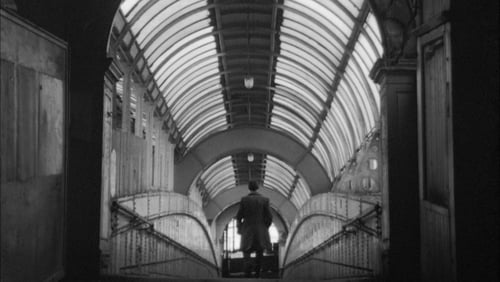
Writer
The second part of Terence Davies' trilogy revolving around Liverpudlian Robert Tucker, focusing on the character's efforts in middle-age to come to terms with his homosexuality.

Director
The second part of Terence Davies' trilogy revolving around Liverpudlian Robert Tucker, focusing on the character's efforts in middle-age to come to terms with his homosexuality.
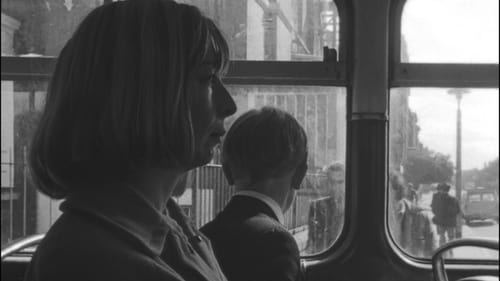
Writer
Robert Tucker, a young gay man who is almost without affect, sits in various waiting rooms. As he sits, he recalls events from the year of his childhood when his father dies. He's ten or eleven that year, picked on by bullies at the Catholic school he attends. He seems friendless. At home, his mother is quiet, his father is ill and angry. After his father's death, there's a wake, the coffin arrives, the body is removed. The lad grieves, alone.

Director
Robert Tucker, a young gay man who is almost without affect, sits in various waiting rooms. As he sits, he recalls events from the year of his childhood when his father dies. He's ten or eleven that year, picked on by bullies at the Catholic school he attends. He seems friendless. At home, his mother is quiet, his father is ill and angry. After his father's death, there's a wake, the coffin arrives, the body is removed. The lad grieves, alone.

Screenplay
Christine looks after her ailing mother and toils in a provincial Austrian post office in the years just after the Great War. One afternoon, as she is dozing among the official forms and stamps, a telegraph arrives addressed to her. It is from her rich aunt, who lives in America and writes requesting that Christine join her and her husband in a Swiss Alpine resort. After a dizzying train ride, Christine finds herself at the top of the world, enjoying a life of privilege that she had never imagined. But Christine’s aunt drops her as abruptly as she picked her up, and soon the young woman is back at the provincial post office, consumed with disappointment and bitterness. Then she meets Ferdinand, a wounded but eloquent war veteran who is able to give voice to the disaffection of his generation. Christine’s and Ferdinand’s lives spiral downward, before Ferdinand comes up with a plan which will be either their salvation or their doom.

Director
Christine looks after her ailing mother and toils in a provincial Austrian post office in the years just after the Great War. One afternoon, as she is dozing among the official forms and stamps, a telegraph arrives addressed to her. It is from her rich aunt, who lives in America and writes requesting that Christine join her and her husband in a Swiss Alpine resort. After a dizzying train ride, Christine finds herself at the top of the world, enjoying a life of privilege that she had never imagined. But Christine’s aunt drops her as abruptly as she picked her up, and soon the young woman is back at the provincial post office, consumed with disappointment and bitterness. Then she meets Ferdinand, a wounded but eloquent war veteran who is able to give voice to the disaffection of his generation. Christine’s and Ferdinand’s lives spiral downward, before Ferdinand comes up with a plan which will be either their salvation or their doom.














